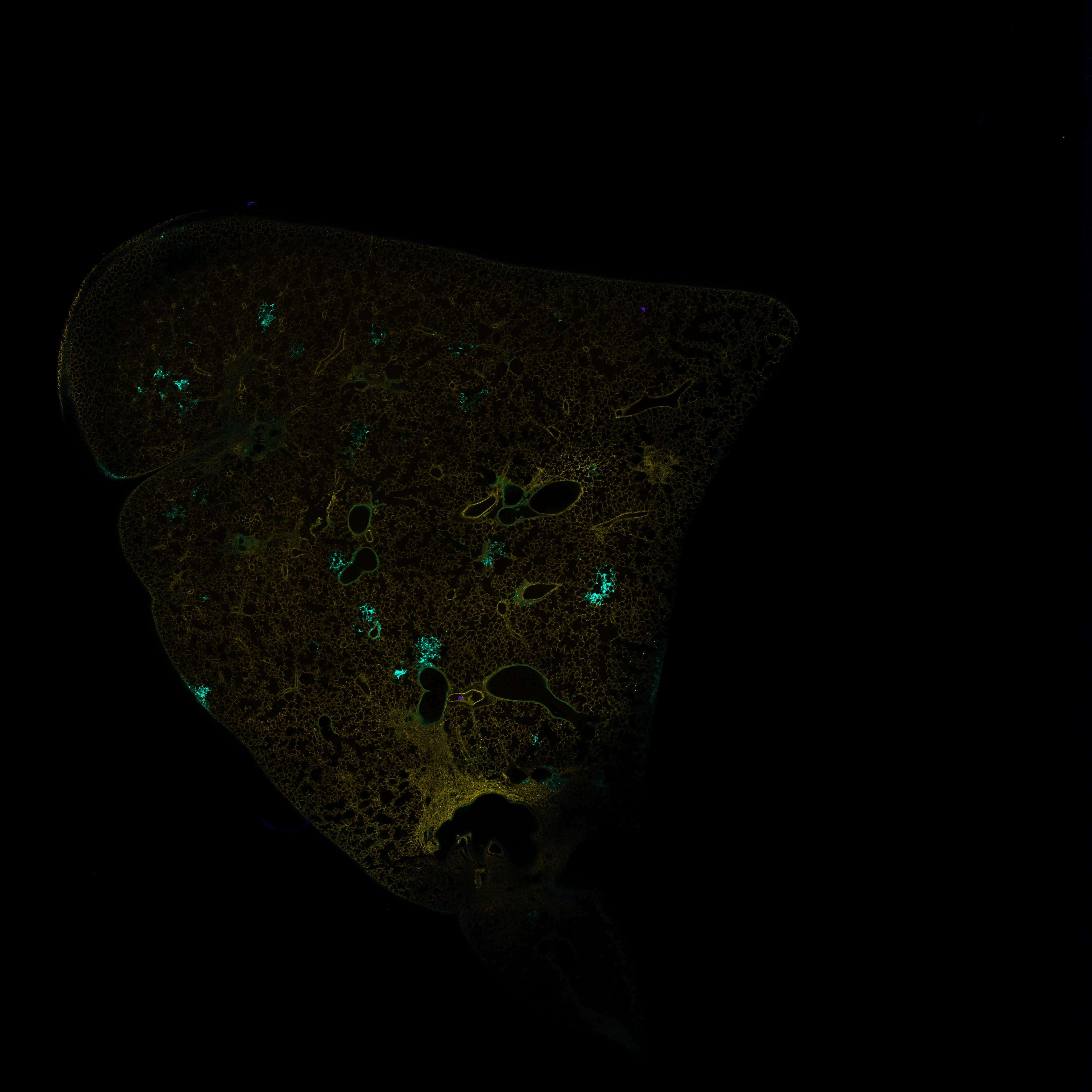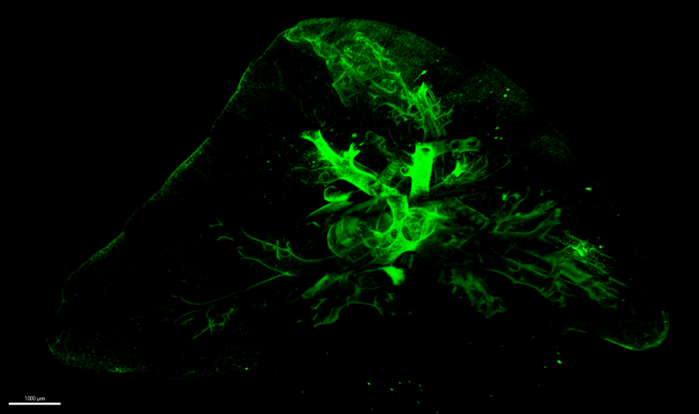Scientists have studied the immune system to find out why flu is easier to fight off than cancer – and hope it could help develop new early-stage treatments.
Studies of mice showed the immune system reacts less vigorously to cancer than to the flu virus, and can react to the same “low level” danger as a small cut.
Scientists at the Cancer Research UK Scotland Institute in Glasgow hope the research could lead to new treatments which boost the immune response so it fully activates and tackles cancer when it starts.
Each year, 16,300 people die from cancer in Scotland, with around 34,100 people newly diagnosed per year.
It was already understood that the body does not always recognise the major threat cancer presents, but perceives the danger posed by flu.
Scientists examined skin cancer that had spread to the lungs – how the immune system reacts to the cancer was the focus and therefore the results could be applicable to a variety of cancer types.
It is hoped the discovery, published in Science Immunology, will lead to new cancer treatments which are less harsh than existing ones.
Researchers experimented on mice, and found that while the immune system reacted vigorously to the flu virus, it did not fully activate against the cancer.
They specifically looked at cells in the immune system of mice – called dendritic cells – which also exist in humans.
There are two types of dendritic cells, one which exists in the cells which become tumorous and those which live in the lymph nodes, a key part of the immune system.
Once the cancer begins, the dendritic cells in the cancer move towards the lymph nodes, but once there, they do not give out the same level of danger alert to the dendritic cells in the lymph nodes as they do when the flu virus is present.

This means the immune system sees the level of threat from the cancer as the same as a minor injury, such as a small cut, and only activates in a low level way.
The next step for the research will be to further examine how the immune system communicates, how it receives signals alerting it to threats and how it understands how significant the threat is.
Further studies will also demonstrate whether the exposure of the immune system to the threat is a factor in how much, or how little, it reacts.

Lead researcher Dr Ed Roberts, of the Cancer Research UK Scotland Institute and the University of Glasgow, said: “We looked at cancer which had spread to the lungs as it affects the same organs which are affected by flu for the best comparison.
“We wanted to see how the immune system coped with the different threats and we saw that the alarm system didn’t activate as strongly as it did for the flu.
“Knowing that the emergency signals get stopped in the part of the process which the dendritic cells are responsible for, could allow new immunotherapies to be created which boost the immune system so it does attack the cancer, or activate the alert system itself.
“This could allow cancers to be caught at an early stage and tackled by a patient’s own immune system rather than harsh treatments which are necessary at a later stage when the cancer has grown and potentially spread to other parts of the body.”
Dr Catherine Elliot, director of research at Cancer Research UK, said: “The immune system is a growing focus of cancer research and this exciting research could help us find ways to help our own bodies fight cancer more vigorously.
“This discovery could help us tackle cancer in its early stages and prevent it developing, spreading and even starting in the first place.
“Further research will be needed but immunology studies such as this could be key to how we treat cancer in the future.”




Why are you making commenting on The Herald only available to subscribers?
It should have been a safe space for informed debate, somewhere for readers to discuss issues around the biggest stories of the day, but all too often the below the line comments on most websites have become bogged down by off-topic discussions and abuse.
heraldscotland.com is tackling this problem by allowing only subscribers to comment.
We are doing this to improve the experience for our loyal readers and we believe it will reduce the ability of trolls and troublemakers, who occasionally find their way onto our site, to abuse our journalists and readers. We also hope it will help the comments section fulfil its promise as a part of Scotland's conversation with itself.
We are lucky at The Herald. We are read by an informed, educated readership who can add their knowledge and insights to our stories.
That is invaluable.
We are making the subscriber-only change to support our valued readers, who tell us they don't want the site cluttered up with irrelevant comments, untruths and abuse.
In the past, the journalist’s job was to collect and distribute information to the audience. Technology means that readers can shape a discussion. We look forward to hearing from you on heraldscotland.com
Comments & Moderation
Readers’ comments: You are personally liable for the content of any comments you upload to this website, so please act responsibly. We do not pre-moderate or monitor readers’ comments appearing on our websites, but we do post-moderate in response to complaints we receive or otherwise when a potential problem comes to our attention. You can make a complaint by using the ‘report this post’ link . We may then apply our discretion under the user terms to amend or delete comments.
Post moderation is undertaken full-time 9am-6pm on weekdays, and on a part-time basis outwith those hours.
Read the rules here